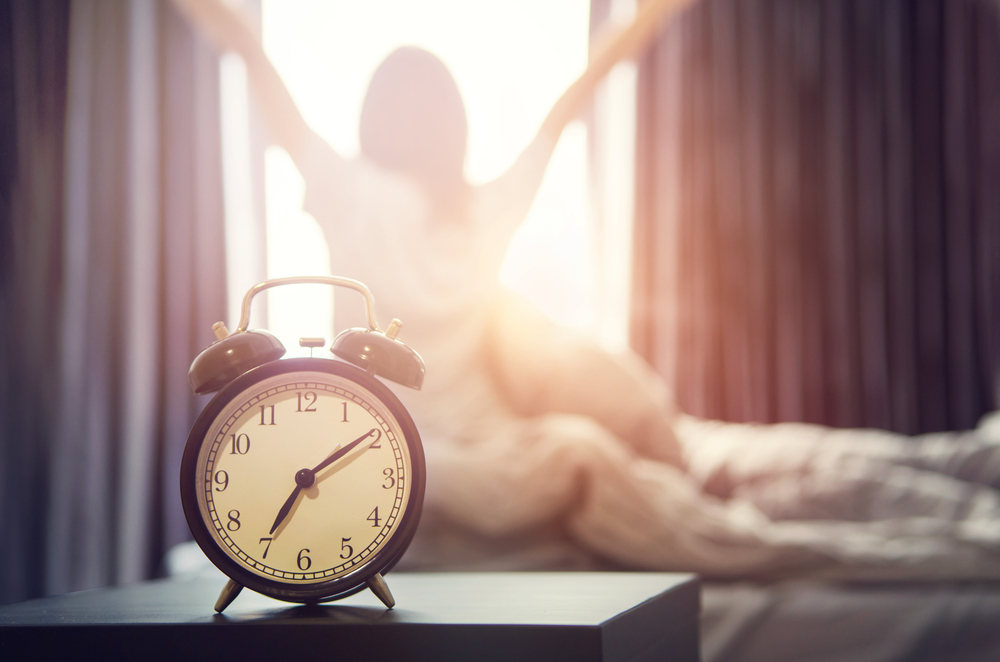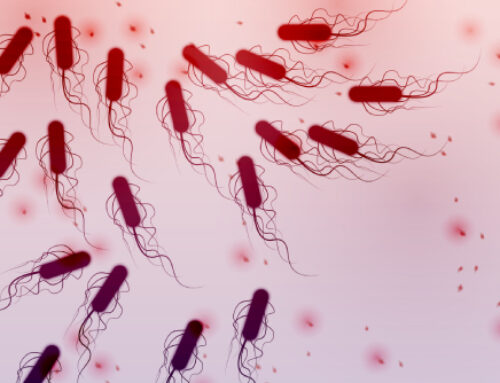Early Birds May Have Higher Cortisol Levels in the Morning
Your chronotype, or what time of day you prefer to conduct your daily activities, is the result of both innate and environmental factors. Many people identify as being more of an “early bird” or “night owl” but fall somewhere in the middle of the spectrum. True night owls, however, described as later or evening chronotypes, tend to go to sleep later, and both later bedtimes and having an evening chronotype have been associated with an increased risk of health problems ranging from metabolic dysfunction to heart disease.1
Recent research has now shown that night owls face additional health risks as well, including an increased risk of premature death. So while early birds are rewarded by catching the worm, night owls must grapple with health risks, perhaps because the modern world forces them to exist in a timeframe that’s mismatched to their biological circadian disposition.
Being a Night Owl Raises Mortality Risk by 10 Percent
The study, published in Chronobiology International,2 involved more than 433,000 people who were classified as definite or moderate morning or evening types. At the end of the 6.5-year study, people who were definite evening types had a 10 percent increased risk of dying from any cause compared to definite morning types. In fact, the more a person trended toward an evening chronotype, the higher their disease risk became.
Compared to early birds, night owls had nearly double the risk of developing a psychological disorder, a 30 percent higher risk of diabetes, a 23 percent higher risk of respiratory disease and a 22 percent higher risk of gastrointestinal disease.3 The increased risk of disease and mortality could be due, according to researchers, to behavioral, psychological and physiological risk factors that may be “attributable to chronic misalignment between internal physiological timing and externally imposed timing of work and social activities.”4
In other words, for people who are naturally predisposed to wanting to be awake at later times of day, the challenge of having to wake early and function out of sync with their internal clock could have health consequences. It’s not necessarily that being a night owl is harmful in itself, but rather that night owls are often expected to behave like early birds, even if their bodies are telling them otherwise. It’s important to note, too, that only those who identified as being “definite” evening types experienced the large jump in health risks.
People in the “moderate” category were much less affected. Jamie Zeitzer, associate professor of psychiatry and behavioral sciences at the Stanford School of Medicine, who was not involved in the study, also told CNN, “It’s not intrinsically chronotype that’s bad; it’s chronotype plus our society … and not all societies are the same … If you looked in Spain, where people are much later in terms of when they go to work, my guess is that the health consequences are probably less than in the U.K.”5
Night Owls More Likely To Be Depressed
Evening chronotypes may not only face an increased risk of physical health issues but a greater risk of mental health problems as well. For example, research presented at the Endocrine Society’s 2017 annual meeting in Orlando, Florida, analyzed data from nearly 500 people with Type 2 diabetes.6 Those with a later chronotype had more symptoms of depression compared to those who go to bed early and wake early,7 a finding that could also influence their diabetes outcomes, since depression is linked to diabetes complications.8,9
Sleep, light exposure and depression are intricately linked, which is why it’s not surprising that being a night owl also showed a connection. Night owls who stay up later are likely exposed to more light at night than early birds, which can have serious repercussions. An animal study conducted at Ohio State University Medical Center found, for instance, that chronic exposure to dim light at night can cause signs of depression after just a few weeks.10
The study also showed changes in hamsters’ hippocampi similar to brain changes seen in depressed people, with researchers pointing out that rates of depression have risen along with exposure to artificial light at night. The link could be due to the production of the hormone melatonin, which is interrupted when you’re exposed to light at night.
There are many studies that suggest melatonin levels (and by proxy light exposures) control mood-related symptoms, such as those associated with depression. Meanwhile, many night owls may still have to get up early, and if they’re staying up late it means they’re skimping on sleep as a result. Lack of sleep also increases your risk of depression, along with other chronic diseases and even mortality risk.
Early Birds May Have Higher Cortisol Levels in the Morning
The feeling of being a morning person — or decidedly NOT a morning person — is increasingly looking to be tied to many biological factors, including your cortisol, or stress hormone, levels. Cortisol naturally reaches the lowest level in the middle of the night and peaks in the morning hours, usually in the first 20 to 30 minutes after waking. This “cortisol awakening response,” as it’s known, helps you to feel more alert and ready to tackle your day.
But when researchers tested saliva cortisol levels in 112 men immediately, 30, 45 and 60 minutes after waking, they found marked differences between the morning and evening chronotypes.11 Compared to the night owls, the early birds had higher cortisol levels in the first hour after waking, which could be yet another factor why people with evening chronotypes have a harder time getting going in the morning.
Night Owls Can Change Their Ways
While it’s thought that chronotype is partly based on genetics, it’s also influenced by environmental factors. As such, there are many changes you can make to gradually push your chronotype toward the earlier variety. For starters, keep a regular bedtime and wake time, gradually pushing your bedtime earlier in the day so you’re asleep by 9 p.m. or 10 p.m. — the time when your brain starts progressively increasing melatonin to make you sleepy.
You can also use light exposure strategically to help you, focusing on getting bright daylight exposure in the morning and around solar noon, for at least a half-hour or more each day. This will “anchor” your circadian rhythm and make it less prone to drifting if you’re exposed to light later in the evening.
When it’s time to go to sleep, make sure your bedroom is pitch black and all light — even that seeping in around your curtains — is blocked. If your bedroom isn’t completely dark, wear an eye mask when you go to sleep. Equally, if not more, important as getting bright light exposure during the day is avoiding light exposure at night.
Red and amber lights will not suppress melatonin, while blue, green and white lights — the wavelengths that are the most common outdoors during daytime hours — will. Ideally, turn off your cellphone, computer, tablet and TV and shift to a low-wattage light bulb with yellow, orange or red light at sundown if you need illumination. A salt lamp illuminated by a 5-watt bulb is an ideal solution that will not interfere with your melatonin production.
You can also install blue light-blocking software like f.lux onto your computer and cellphone. The program automatically alters the color temperature of your screen as the day goes on, pulling out the blue wavelengths as it gets late. The simplest solution of all, however, is to wear blue-blocking, amber-colored glasses starting at dusk, which will shield you from light no matter what your environment.
Studies have confirmed that when using blue-blocking glasses, people produce as much melatonin as they do in dim light, even if they’re in a lit room or using light-emitting technology.12
Other studies have shown that people using blue-blocking glasses had major improvements in both sleep quality and mood. Shift workers who use them before bedtime (i.e., in the morning when it’s bright out) also report improved sleep.13 So get yourself a pair of blue-blocking glasses and get in the habit of putting them on when the sun sets — especially if you’re planning to stay up late.
Could Society Reduce the Risks of Being a Night Owl?
The researchers of the featured study suggested that being a night owl shouldn’t be viewed as a character flaw and employers should understand that people vary on the times of day when they do their best work.
Study author Kristen Knutson, associate professor of neurology at Northwestern University Feinberg School of Medicine, said in a press release, ” … [J]obs and work hours could have more flexibility for owls … They shouldn’t be forced to get up for an 8 a.m. shift. Make work shifts match peoples’ chronotypes. Some people may be better suited to night shifts.”14 Malcolm von Schantz, a professor of chronobiology at the University of Surrey, agreed, stating:
“This is a public health issue that can no longer be ignored. We should discuss allowing evening types to start and finish work later, where practical. And we need more research about how we can help evening types cope with the higher effort of keeping their body clock in synchrony with sun time.”
Remember, too, that many people stay up late not because of a genetic predisposition to doing so but due to external factors like stress, alcohol use or binge-watching TV. In either case, but especially if you’re staying up late for no good reason, the more you can shift your body clock to an earlier bedtime and wake time the better. Start by figuring out what time you need to wake up and go backward from there. Most adults need seven to nine hours of sleep a night, so that will give you your target bedtime.
For instance, if you need to be up at 6 a.m., you have to have a lights-out deadline of 9:30 or 10 p.m., depending on how quickly you tend to fall asleep. If you find you’re having trouble falling asleep, despite your best efforts, read through my 50 tips to improve your sleep. From addressing sound pollution to Wi-Fi to even sleeping naked, it often takes a comprehensive approach to clean up your sleep hygiene — and forgo your night owl tendencies — but your efforts will pay off in the form of improved physical and mental health.
https://articles.mercola.com/sites/articles/archive/2018/05/10/early-bird-or-night-owl-person.aspx
Sources and References
1, 2, 4 Chronobiology International April 11, 2018
3 The New York Times April 12, 2018
5 CNN April 12, 2018
6 AJMC April 3, 2017
7 Science Daily April 3, 2017
8 Time April 7, 2017
9 Health April 6, 2017
10 Molecular Psychiatry July 24, 2012
11 Biol Psychol. 2006 May;72(2):141-6.
12 Applied Ergonomics 2013 Mar;44(2):237-40
13 Chronobiology International 2009 Dec;26(8):1602-12
14 EurekAlert April 12, 2018





Leave A Comment